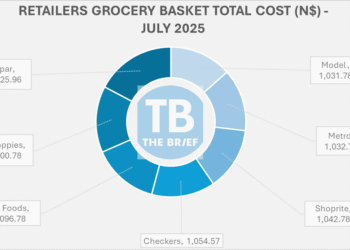
NamWater has commissioned the Henties Bay Extension & Upgrade Phase 1 and the Kuiseb-Collector 2-Swakopmund Pipeline Replacement (Phase 3) to meet the growing demand for reliable water services across the country.
In April 2024, a groundbreaking ceremony was held for the Henties Bay Pipeline Upgrade Project. In June 2024, discussions were held regarding development initiatives at Henties Bay, which were expected to redefine Namibia’s maritime and industrial landscape.
Speaking at the commissioning event, NamWater CEO Abraham Nehemia said that these projects are central to the national water utility’s ongoing efforts to provide reliable and sustainable water services to communities across Namibia.
“I am delighted to address you today as we witness the commissioning of these two important water infrastructure projects in our nation: the Henties Bay Extension & Upgrade Phase 1 and the Kuiseb-Collector 2-Swakopmund Pipeline Replacement (Phase 3),†he said.
He further explained that the Henties Bay project involves a 5 km pipeline replacement, addressing water demand driven by population growth and seasonal tourism.
This upgrade will improve service reliability, reduce water losses, and enhance the overall efficiency of the water supply system.
It is vital not only for Henties Bay but for the broader Erongo region, benefiting residents, businesses, and tourists alike with a consistent water supply throughout the year.
“It is an essential project not just for Henties Bay but also for the larger Erongo region, ensuring that residents, businesses, and tourists alike have access to reliable water throughout the year,†he said.
Also speaking at the event, Minister of Agriculture, Water, and Land Reform Calle Schlettwein said that the Kuiseb-Collector 2-Swakopmund Pipeline Replacement (Phase 3) focuses on strengthening water security for the coastal areas, particularly Swakopmund and Walvis Bay.
As major tourist destinations and hubs for industries like mining and fisheries, a stable water supply is essential for supporting both the local economy and industrial growth.
The project will replace outdated pipeline infrastructure with more efficient systems, ensuring continued water supply and reducing the risk of interruptions.
“The upgraded infrastructure will also contribute to a reduction in water loss, ensuring more efficient distribution and better service delivery to both residential and industrial users in this vital economic hub,†the Minister said.











